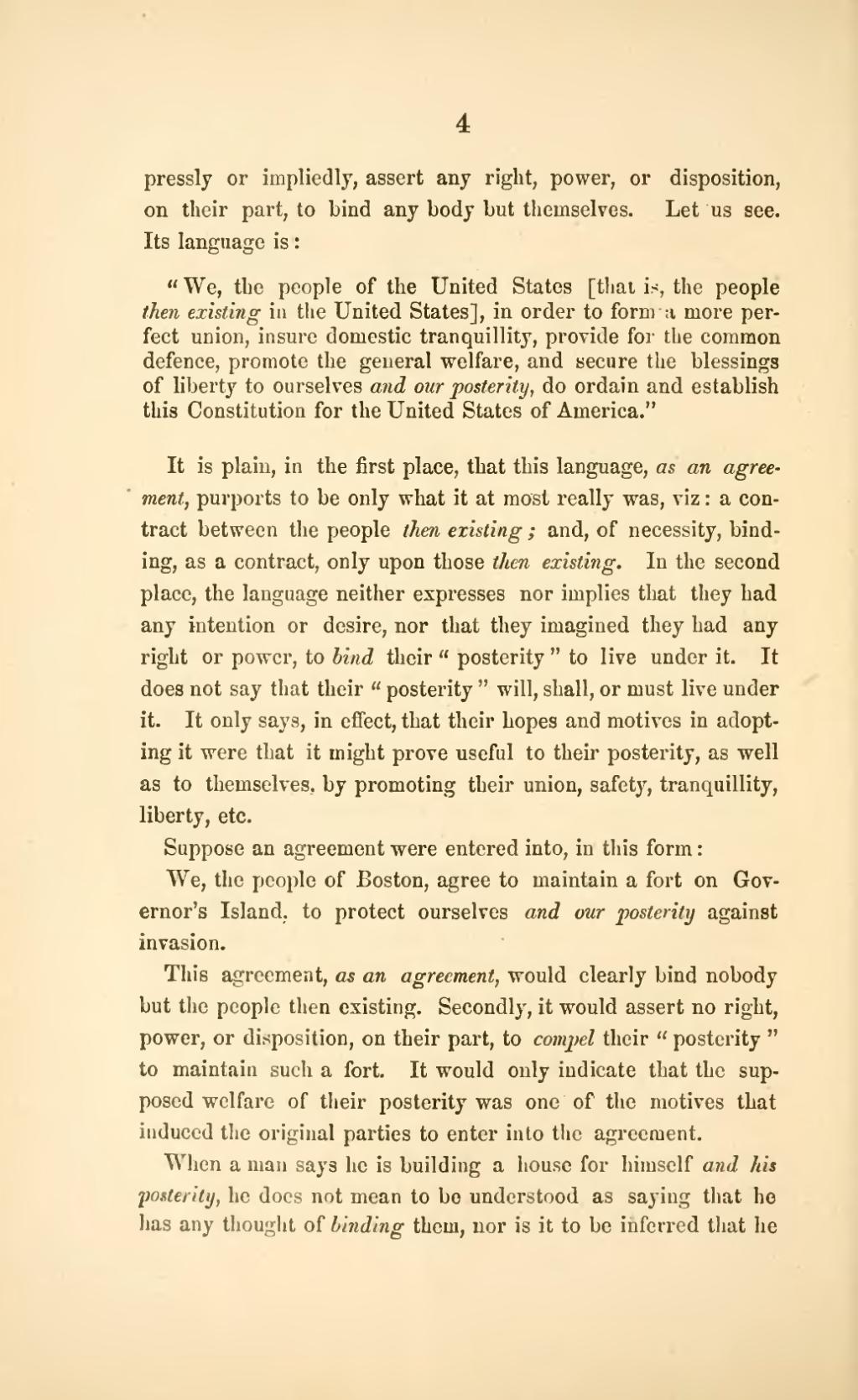4
pressly or impliedly, assert any right, power, or disposition, on their part, to bind any body but themselves. Let us see. Its language is:
- "We, the people of the United States [that is, the people then existing in the United States], in order to form a more perfect union, insure domestic tranquillity, provide for the common defence, promote the general welfare, and secure the blessings of liberty to ourselves and our posterity, do ordain and establish this Constitution for the United States of America."
It is plain, in the first place, that this language, as an agreement, purports to be only what it at most really was, viz: a contract between the people then existing; and, of necessity, binding, as a contract, only upon those then existing. In the second place, the language neither expresses nor implies that they had any intention or desire, nor that they imagined they had any right or power, to bind their "posterity" to live under it. It does not say that their "posterity" will, shall, or must live under it. It only says, in effect, that their hopes and motives in adopting it were that it might prove useful to their posterity, as well as to themselves, by promoting their union, safety, tranquillity, liberty, etc.
Suppose an agreement were entered into, in this form:
We, the people of Boston, agree to maintain a fort on Governor's Island, to protect ourselves and our posterity against invasion.
This agreement, as an agreement, would clearly bind nobody but the people then existing. Secondly, it would assert no right, power, or disposition, on their part, to compel their "posterity" to maintain such a fort. It would only indicate that the supposed welfare of their posterity was one of the motives that induced the original parties to enter into the agreement.
When a man says he is building a house for himself and his posterity, he does not mean to be understood as saying that he has any thought of binding them, nor is it to be inferred that he
